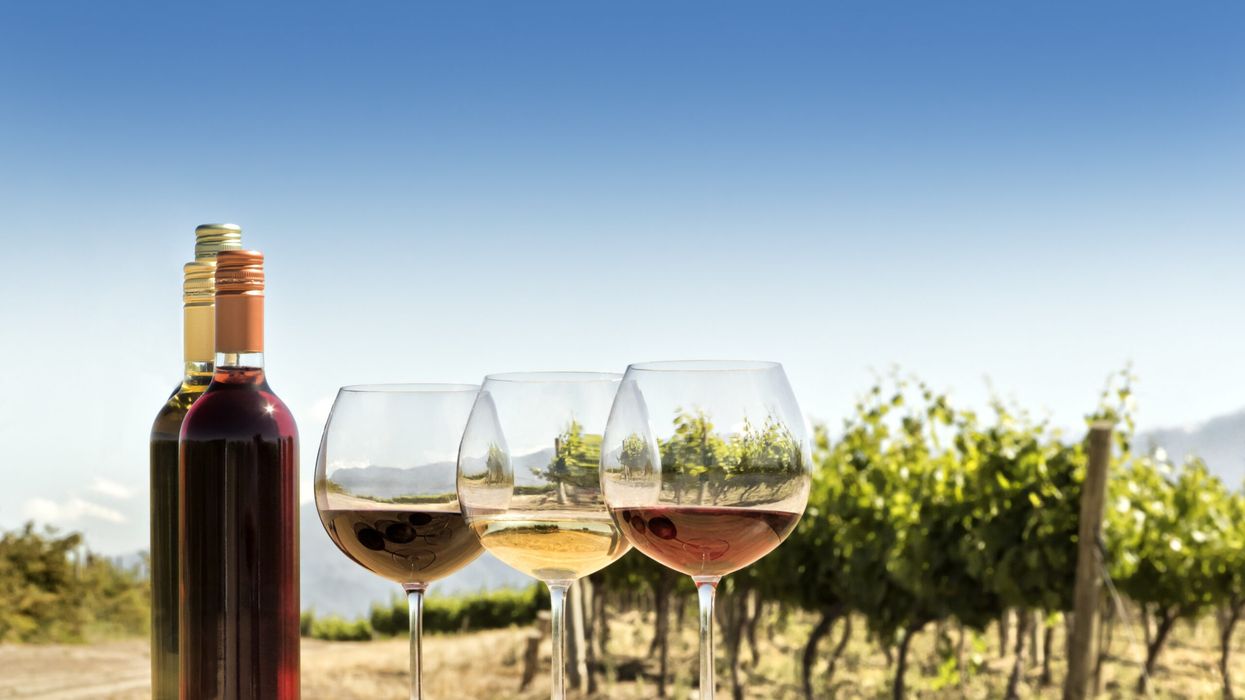At a wine farm in South Africa, dry and uprooted grapevines are piled at the base of a sloping stretch of brown fallow land. Much of the vineyard is undergoing replanting to adapt to climate change, which is expected to bring rarer yet more intense rainfall to this wine-producing region.
From Australia to California, France, Spain, and Italy, winemakers across the globe are racing to adapt to the changing climate, which impacts grape production.
"I don't like to just accept things. Let's fight back," said Rosa Kruger, a viticultural consultant leading the project in the Cape Winelands region east of Cape Town.
The Reyneke estate's vineyards, like other wine farms around Stellenbosch, were not prepared for climate shocks, according to Kruger.
"In the past, we used to have square blocks," said Kruger, a farmer. She is replacing this planting setup to accommodate the landscape.
The replanting is phased, allowing older vines like Chenin, the iconic grape variety of France's Loire region, to continue producing while new vines grow. The new vines take up to four years to become productive.
"We designed the vineyards according to the natural topography," Kruger said. Drains are being installed between plots to collect rainwater, which converges into a reservoir for use during dry spells.
Native shrubs are being planted to increase biodiversity, inviting insects and other animals back to improve soil health. European settlers' pine trees, which stood at the vineyard's edge, have been removed as they consumed excessive water.
Natural fertiliser comes from dozens of cows on the property.
"We aim to create the perfect farm that will remain relevant in 50 or 100 years," said Rudiger Gretschel, 46, Reyneke's chief winemaker and director.
The estate benefits from favourable conditions such as "granite soils" and "proximity to the ocean," Gretschel noted.
Growing grapes "at the southern tip of Africa" presents challenges.
"The climate is already unpredictable," he said. "We already receive very little rain. It's already quite hot."
The situation is expected to worsen. The planet is on course for a potentially catastrophic temperature increase of up to 3 degrees Celsius by the end of the century, according to the United Nations.
Projections suggest Stellenbosch's Western Cape province will experience a 30% decrease in annual rainfall by 2050.
Though less frequent, rains are expected to become heavier, causing more flooding.
"If people don't believe in global warming, they should come to South Africa," said Kruger, who encountered skepticism when she began advocating for climate adaptation over a decade ago.
Cape Town, less than an hour's drive away, already faces water shortages.
"When rains are scarce, that water will be allocated to city residents, not farmers," Kruger said. "It's essential to become self-sufficient. That's the key goal."




